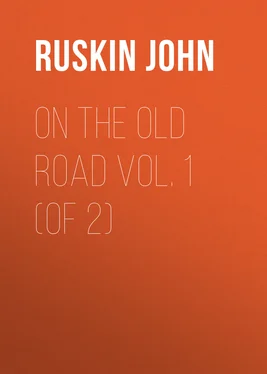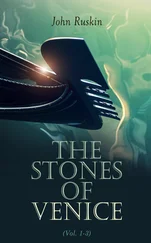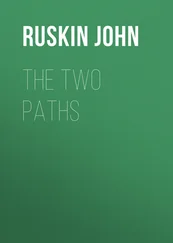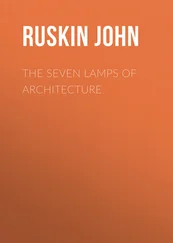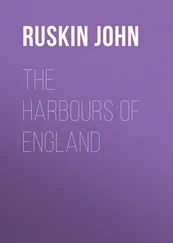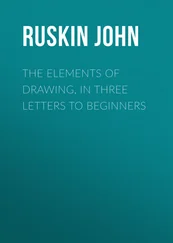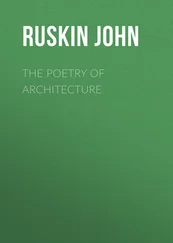John Ruskin - On the Old Road Vol. 1 (of 2)
Здесь есть возможность читать онлайн «John Ruskin - On the Old Road Vol. 1 (of 2)» — ознакомительный отрывок электронной книги совершенно бесплатно, а после прочтения отрывка купить полную версию. В некоторых случаях можно слушать аудио, скачать через торрент в формате fb2 и присутствует краткое содержание. Жанр: foreign_antique, foreign_home, literature_19, visual_arts, на английском языке. Описание произведения, (предисловие) а так же отзывы посетителей доступны на портале библиотеки ЛибКат.
- Название:On the Old Road Vol. 1 (of 2)
- Автор:
- Жанр:
- Год:неизвестен
- ISBN:нет данных
- Рейтинг книги:3 / 5. Голосов: 1
-
Избранное:Добавить в избранное
- Отзывы:
-
Ваша оценка:
- 60
- 1
- 2
- 3
- 4
- 5
On the Old Road Vol. 1 (of 2): краткое содержание, описание и аннотация
Предлагаем к чтению аннотацию, описание, краткое содержание или предисловие (зависит от того, что написал сам автор книги «On the Old Road Vol. 1 (of 2)»). Если вы не нашли необходимую информацию о книге — напишите в комментариях, мы постараемся отыскать её.
On the Old Road Vol. 1 (of 2) — читать онлайн ознакомительный отрывок
Ниже представлен текст книги, разбитый по страницам. Система сохранения места последней прочитанной страницы, позволяет с удобством читать онлайн бесплатно книгу «On the Old Road Vol. 1 (of 2)», без необходимости каждый раз заново искать на чём Вы остановились. Поставьте закладку, и сможете в любой момент перейти на страницу, на которой закончили чтение.
Интервал:
Закладка:
87. There is much ingenuity, and some truth, here, but the reader, as in other of Lord Lindsay's speculations, must receive his conclusions with qualification. It is the natural character of strong effects of color, as of high light, to confuse outlines; and it is a necessity in all fine harmonies of color that many tints should merge imperceptibly into their following or succeeding ones:—we believe Lord Lindsay himself would hardly wish to mark the hues of the rainbow into divided zones, or to show its edge, as of an iron arch, against the sky, in order that it might no longer reflect (a reflection of which we profess ourselves up to this moment altogether unconscious) "that lax morality which confounds the limits of right and wrong." Again, there is a character of energy in all warm colors, as of repose in cold, which necessarily causes the former to be preferred by painters of savage subject—that is to say, commonly by the coarsest and most degraded;—but when sensuality is free from ferocity, it leans to blue more than to red (as especially in the flesh tints of Guido), and when intellect prevails over this sensuality, its first step is invariably to put more red into every color, and so "rubor est virtutis color." We hardly think Lord Lindsay would willingly include Luca Giordano among his spiritual painters, though that artist's servant was materially enriched by washing the ultramarine from the brushes with which he painted the Ricardi palace; nor would he, we believe, degrade Ghirlandajo to fellowship with the herd of the sensual, though in the fresco of the vision of Zacharias there are seventeen different reds in large masses, and not a shade of blue. The fact is, there is no color of the spectrum, as there is no note of music, whose key and prevalence may not be made pure in expression, and elevating in influence, by a great and good painter, or degraded to unhallowed purpose by a base one.
88. We are sorry that our author "cannot unreservedly praise the coloring of Angelico;" but he is again curbed by his unhappy system of balanced perfectibility, and must quarrel with the gentle monk because he finds not in him the flames of Giorgione, nor the tempering of Titian, nor the melody of Cagliari. This curb of perfection we took between our teeth from the first, and we will give up our hearts to Angelico without drawback or reservation. His color is, in its sphere and to its purpose, as perfect as human work may be: wrought to radiance beyond that of the ruby and opal, its inartificialness prevents it from arresting the attention it is intended only to direct; were it composed with more science it would become vulgar from the loss of its unconsciousness; if richer, it must have parted with its purity, if deeper, with its joyfulness, if more subdued, with its sincerity. Passages are, indeed, sometimes unsuccessful; but it is to be judged in its rapture, and forgiven in its fall: he who works by law and system may be blamed when he sinks below the line above which he proposes no elevation, but to him whose eyes are on a mark far off, and whose efforts are impulsive, and to the utmost of his strength, we may not unkindly count the slips of his sometime descent into the valley of humiliation.
89. The concluding notice of Angelico is true and interesting, though rendered obscure by useless recurrence to the favorite theory.
"Such are the surviving works of a painter, who has recently been as unduly extolled as he had for three centuries past been unduly depreciated,—depreciated, through the amalgamation during those centuries of the principle of which he was the representative with baser, or at least less precious matter—extolled, through the recurrence to that principle, in its pure, unsophisticated essence, in the present —in a word, to the simple Imaginative Christianity of the middle ages, as opposed to the complex Reasoning Christianity of recent times. Creeds therefore are at issue, and no exclusive partisan, neither Catholic nor Protestant in the absolute sense of the terms, can fairly appreciate Fra Angelico. Nevertheless, to those who regard society as progressive through the gradual development of the component elements of human nature, and who believe that Providence has accommodated the mind of man, individually, to the perception of half-truths only, in order to create that antagonism from which Truth is generated in the abstract, and by which the progression is effected, his rank and position in art are clear and definite. All that Spirit could achieve by herself, anterior to that struggle with Intellect and Sense which she must in all cases pass through in order to work out her destiny, was accomplished by him. Last and most gifted of a long and imaginative race—the heir of their experience, with collateral advantages which they possessed not—and flourishing at the moment when the transition was actually taking place from the youth to the early manhood of Europe; he gave full, unreserved, and enthusiastic expression to that Love and Hope which had winged the Faith of Christendom in her flight towards heaven for fourteen centuries,—to those yearnings of the Heart and the Imagination which ever precede, in Universal as well as Individual development, the severer and more chastened intelligence of Reason."—Vol. iii., pp. 188-190.
90. We must again repeat that if our author wishes to be truly serviceable to the schools of England, he must express himself in terms requiring less laborious translation. Clearing the above statement of its mysticism and metaphor, it amounts only to this,—that Fra Angelico was a man of (humanly speaking) perfect piety—humility, charity, and faith—that he never employed his art but as a means of expressing his love to God and man, and with the view, single, simple, and straightforward, of glory to the Creator, and good to the Creature. Every quality or subject of art by which these ends were not to be attained, or to be attained secondarily only, he rejected; from all study of art, as such, he withdrew; whatever might merely please the eye, or interest the intellect, he despised, and refused; he used his colors and lines, as David his harp, after a kingly fashion, for purposes of praise and not of science. To this grace and gift of holiness were added, those of a fervent imagination, vivid invention, keen sense of loveliness in lines and colors, unwearied energy, and to all these gifts the crowning one of quietness of life and mind, while yet his convent-cell was at first within view, and afterwards in the center, of a city which had lead of all the world in Intellect, and in whose streets he might see daily and hourly the noblest setting of manly features. It would perhaps be well to wait until we find another man thus actuated, thus endowed, and thus circumstanced, before we speak of "unduly extolling" the works of Fra Angelico.
91. His artistical attainments, as might be conjectured, are nothing more than the development, through practice, of his natural powers in accordance with his sacred instincts. His power of expression by bodily gesture is greater even than Giotto's, wherever he could feel or comprehend the passion to be expressed; but so inherent in him was his holy tranquillity of mind, that he could not by any exertion, even for a moment, conceive either agitation, doubt, or fear—and all the actions proceeding from such passions, or, à fortiori , from any yet more criminal, are absurdly and powerlessly portrayed by him; while contrariwise, every gesture, consistent with emotion pure and saintly, is rendered with an intensity of truth to which there is no existing parallel; the expression being carried out into every bend of the hand, every undulation of the arm, shoulder, and neck, every fold of the dress and every wave of the hair. His drawing of movement is subject to the same influence; vulgar or vicious motion he cannot represent; his running, falling, or struggling figures are drawn with childish incapability; but give him for his scene the pavement of heaven, or pastures of Paradise, and for his subject the "inoffensive pace" of glorified souls, or the spiritual speed of Angels, and Michael Angelo alone can contend with him in majesty,—in grace and musical continuousness of motion, no one. The inspiration was in some degree caught by his pupil Benozzo, but thenceforward forever lost. The angels of Perugino appear to be let down by cords and moved by wires; that of Titian, in the sacrifice of Isaac, kicks like an awkward swimmer; Raphael's Moses and Elias of the Transfiguration are cramped at the knees; and the flight of Domenichino's angels is a sprawl paralyzed. The authority of Tintoret over movement is, on the other hand, too unlimited; the descent of his angels is the swoop of a whirlwind or the fall of a thunderbolt; his mortal impulses are oftener impetuous than pathetic, and majestic more than melodious.
Читать дальшеИнтервал:
Закладка:
Похожие книги на «On the Old Road Vol. 1 (of 2)»
Представляем Вашему вниманию похожие книги на «On the Old Road Vol. 1 (of 2)» списком для выбора. Мы отобрали схожую по названию и смыслу литературу в надежде предоставить читателям больше вариантов отыскать новые, интересные, ещё непрочитанные произведения.
Обсуждение, отзывы о книге «On the Old Road Vol. 1 (of 2)» и просто собственные мнения читателей. Оставьте ваши комментарии, напишите, что Вы думаете о произведении, его смысле или главных героях. Укажите что конкретно понравилось, а что нет, и почему Вы так считаете.
